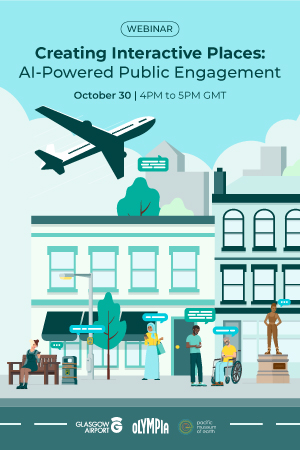techUK
|
|
Tech and innovation can help Britain to ‘build back greener’
WeLink CEO Natalie Duffield says connectivity and carbon emissions are entwined – if places can increase speeds, they can reduce unnecessary travel
Tech and innovation can help towns and cities across Britain to “build back greener” and unleash the power of digital and data. The pandemic gave us a glimpse of how technology can transform our daily lives and reduce our impact on the environment but it also exposed serious shortcomings in the broadband services on which we rely.
Global carbon dioxide emissions fell by 6.4 per cent in 2020, according to analysis by Nature magazine, as Covid-19 curtailed economic, social and transportation activities worldwide and forced a shift to remote work, education and healthcare. For those with ultrafast connectivity, the switch online was painless and productive but many have found themselves left behind: Ofcom has said barely one quarter of homes have access to gigabit-speed broadband while as many as six per cent of homes are entirely without the internet.
Connectivity and carbon emissions are entwined
We believe the issues of connectivity and carbon emissions are entwined for towns and cities. Simply put, the more powerful the connectivity, the more we can do online – and the less we need to travel. This is significant because transport represents almost a quarter of Europe’s greenhouse gas emissions and is the main cause of air pollution in urban areas, according to the European Commission. Witness the growth of the '15-minute city’ in post-Covid neighbourhood planning around the world, a concept first floated at COP21 back in 2015.
The government has set a target for at least 85 per cent of UK premises to have access to gigabit broadband by 2025. The deployment is being hindered by problems including planning regulations, business rates treatment of fibre, requirements for new-build properties and a skills shortage adding costs and delays to the programme. In the meantime, the internet is assuming a growing importance in our personal, social and economic lives and the next wave of technological innovation will depend on lightning-fast connectivity.
Innovation can overcome infrastructure challenges
Innovation can overcome these barriers. In Edinburgh, we have launched Britain’s first major wireless gigabit broadband service in the city centre, bringing that lightning-fast connectivity to the Old and New Towns without the disruption of having to dig up streets in a World Heritage Site and sidestepping the infrastructure challenges faced by fibre providers. WeLink radios transmit a tiny fraction of the power compared to mainstream 5G equipment. And the kit is above ground and accessible, meaning it can be constantly upgraded.
WeLink’s vice president of technology Dr Ahsan Naim has highlighted how fixed and mobile networks are typically designed according to the profile of download traffic but with the integration of cloud-based applications and services, the upload-to-download ratio is changing as devices are increasingly required to send traffic up to the cloud. Remote work, education and healthcare and IoT applications for improving energy efficiency all demand stronger upload speeds. The solution to this traffic jam is a broadband service that can offer symmetric capacity to the user. That’s our contribution in practice.
Gigabit wireless can unleash the power of digital and data
Tech and innovation such as this can help cut carbon emissions by reducing unnecessary travel and create jobs by providing the gigabit broadband for the new processes, services and business models needed to decarbonise our economy. It can unleash the power of digital and data and truly help Britain to “build back greener”.
- Natalie Duffield is CEO of WeLink Communications UK Ltd and vice-chair of techUK’s Local Public Services Committee
Original article link: https://www.techuk.org/resource/tech-and-innovation-can-help-britain-to-build-back-greener.html


